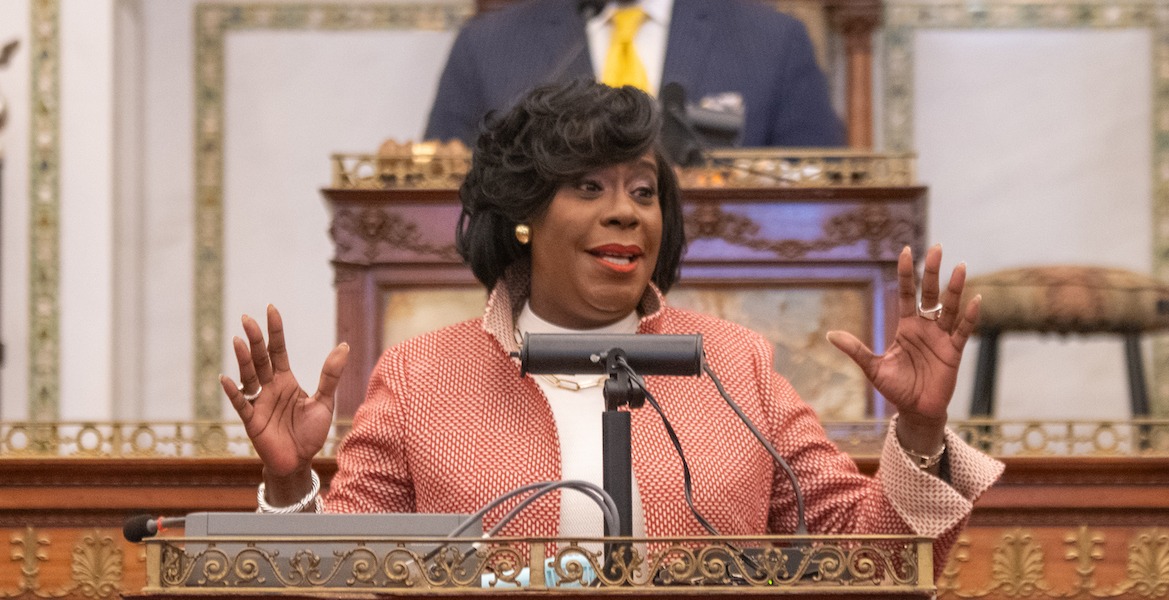When City Council approved the budget for the City’s General Fund for fiscal year 2025 on June 13, 2024, it was the first opportunity for Philadelphians to see what Mayor Cherelle Parker’s campaign promises would look like in action.
The $6.4 billion budget — a fraction higher than Mayor Kenney’s last budget, but more than $2 billion more than what he started his administration with — is a combination of fixed costs, like pension and employee benefits, and Mayoral priorities. The General Fund is the main way that the City pays for day-to-day operations, and it’s primarily funded through taxpayer dollars. It supports core resident-facing municipal functions like police, firefighters, trash collection, parks and libraries, as well as administrative functions like public property management and human resources.
More than that, the budget tells a story of who we are as a city, with residents collectively funding and benefiting from the services laid out in the budget. “The budget is a moral document,” says Lauren Cristella, President and CEO of the nonpartisan watchdog group Committee of Seventy. “It demonstrates where those campaign promises and priorities get implemented.”
City Council is in the process of holding budget hearings with each department head about the budget requests — and hearing from citizens about what they want to see funded (or not). Council must approve a budget in time for the start of fiscal year 2025 on July 1, 2024.
To better understand the City’s new budget, we divided funding totals by Philadelphia’s whole population and looked at how the per-person totals for FY25 compared to those from FY24, the last under Mayor Kenney. (See below the chart for some takeaways.)
Here are some of the most substantial takeaways:
-
- In FY24, the City budgeted $35 per person ($54 million in total) to combat unexpected costs from high inflation. This reserve was zeroed out in the FY25 proposal, meaning it could be reallocated to other mayoral priorities.
- There is a $15 per-person ($24M in total) increase in the City’s payment to SEPTA, a result of increased SEPTA funding in the state’s latest budget and the state-mandated local match requirement.
- Funding for the City’s two-year rental assistance program for targeted eviction diversion was not continued in FY25, resulting in a cost savings of about $10 per-person ($15 million in total). Several City Councilmembers introduced legislation this month to make the City’s eviction diversion program permanent and to allocate $100 million to it over two years.
- In last year’s budget, the Finance Department budgeted about $17 per person ($26 million in total) in contributions to more than 100 nonprofits across the city. The budget for these payments was reduced to $2 per person ($3.5 million in total) in FY25, with only a handful of the nonprofits expected to receive funding. (See which ones on pages 17-20 here.)
- The budget for the Commerce Department increased by $8 per person ($13 million in total) to expand the “Taking Care of Business” commercial corridor cleaning program, an initiative first introduced by Mayor Parker while she was on City Council.
Sources: City of Philadelphia Adopted FY 2025 Budget in Brief and Adopted FY 2024 Budget in Brief.
Figures represent adopted funding in fiscal year 2025 for the City of Philadelphia’s General Fund budget, adjusted for population using the latest available data. Figures are compared to the adopted General Fund budget for fiscal year 2024. Funding for the Pre-K and Community Schools programs was separated from the budget for the Department of Human Services and categorized separately. Similarly, funding for the Office of Arts & Culture was separated from the budget for the Managing Director’s Office and categorized separately.
Nick Hand was director of the City Controller’s Finance, Policy and Data unit during Rebecca Rhynhart’s tenure. He is currently a technologist at the Consumer Financial Protection Bureau.
![]() MORE ON THE CITY BUDGET
MORE ON THE CITY BUDGET




